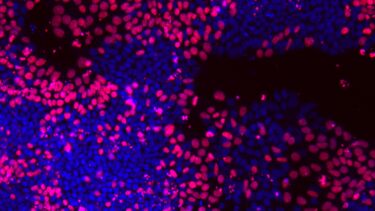The group, funded by the UK Regenerative Medicine Platform and supported by the MRC, BBSRC and EPSRC has produced a white paper highlighting the need for definitive guidelines in hPSC-based therapy.
Human pluripotent stem cell (hPSC) based therapy holds great potential for treating a range of life-changing diseases including parkinsons, deafness and blindness. Clinical trials of hPSC therapy have shown promising results in treatments but the emergence of mutations in the stem cells have raised a real concern over how these would affect a patient - potentially transforming healthy cells into malignant ones. The challenge lies in accurately identifying which variants are dangerous and predicting their long-term effects - weighing the risks over benefits for patients.
The white paper includes proposed solutions:
- Creating centralised, open-access databases to share data on genetic variants.
- Developing advanced laboratory tests to assess the tumor-causing potential of these variants.
- Utilising machine learning to analyse the mass of data generated.
- Increased funding and interdisciplinary collaboration to accelerate research.
By implementing these measures, researchers aim to establish a framework for risk assessment ensuring the safety and efficacy of hPSC-based therapies.
The proactive approach is essential as hPSC therapy has the key to transform lives across the globe - being prepared and fully understanding the risks of the therapy will ultimately lead to its success.
Understanding the impact of genetic variants in human pluripotent stem cells is paramount for the future of cell therapy. This white paper represents a call for immediate and collaborative action, proposing focused strategies towards establishing definitive guidelines in hPSC-based therapy. Fulfilling this action will have a transformative impact by overcoming a critical challenge to the broad application of hPSC-based therapy
Prof. Ivana Barbaric
Professor of Stem Cell Biology
Read the paper

